No matter where you are or what precautions you take, you are going to have to deal with spiders sooner or later. Despite their ability to help the environment, those of us with arachnophobia don’t want them around.
To keep these pests to a minimum, there are several indoor and outdoor plants that repel spiders you can choose from. When it comes to selecting plants that repel insects and spiders, you might notice they have all something in common, their strong scents.
Most plants that deter spiders and other pests have potent odors and include many herbal plants and the ones used to make aromatic essential oils. Some plants have fragrances that we as people find pleasant, such as peppermint or lavender, but spiders and other insects find overwhelming.
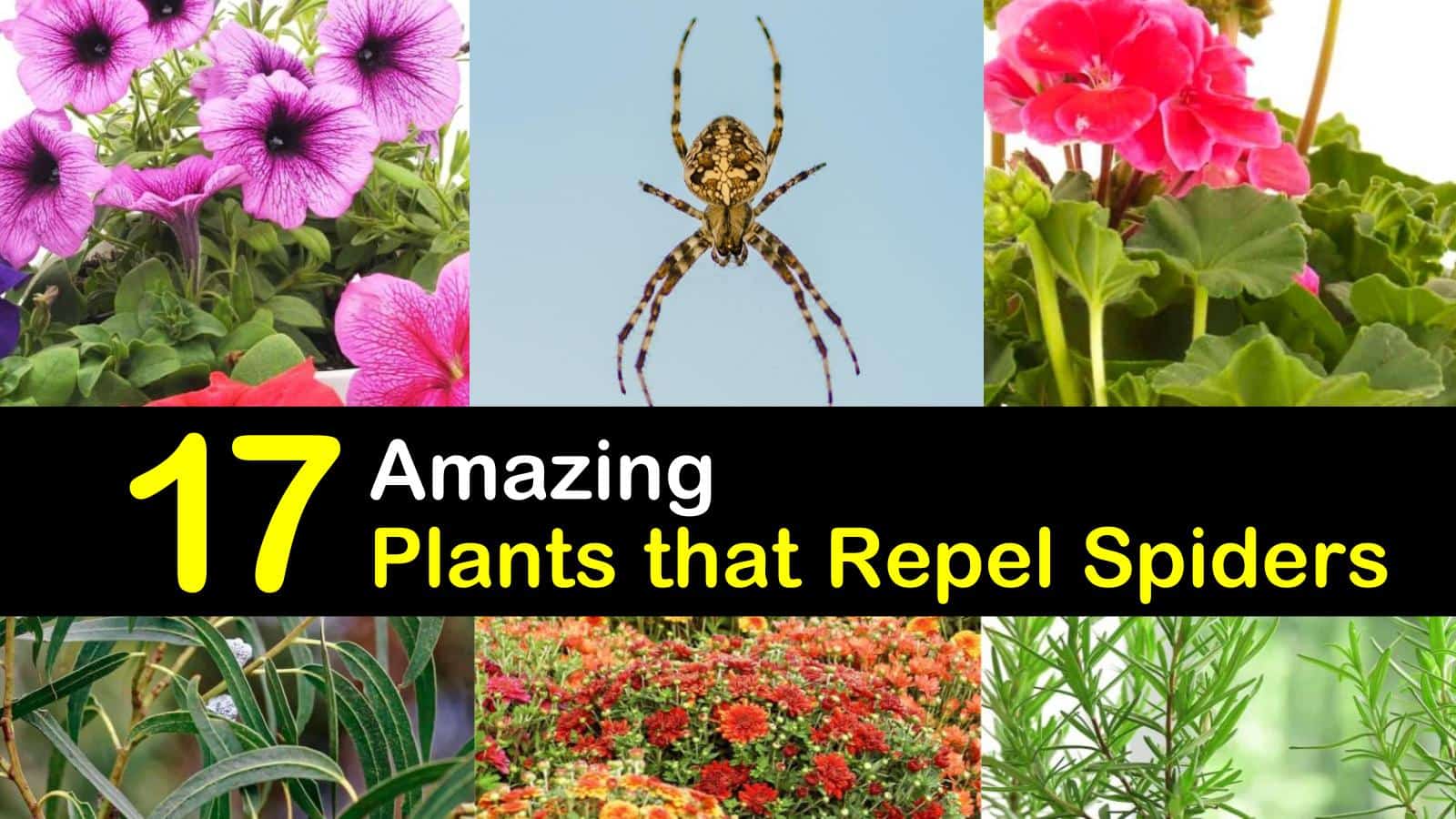
- Spider Repelling Plants
- Are essential oils better than houseplants?
- Basil (Ocimum basilicum) – Spider Deterring Plants
- Mint (Mentha)
- Repel Spiders with this Plant – Lemon thyme (Thymus x citriodus)
- Lavender (Lavandula)
- Chives (Allium schoenoprasum) – Plants that Repel Insects and Spiders
- Dwarf Citrus Tree (Citrus sinensis)
- Deter Spiders with these Plants – Onion (Allium cepa)
- Dill (Anethum graveolens)
- Osage Orange (Maclura pomifera) – Plants that Deter Spiders Naturally
- Lemon Balm (Melissa officinalis)
- Spider Repelling Plants – Rosemary (Rosmarinus officinalis)
- Citronella Grass (Cymbopogon citratus)
- Eucalyptus (Eucalyptus spp.) – Plants that Repel Spiders
- Lemon Verbena (Aloysia citrodora)
- Chrysanthemums (Chrysanthemum morifolium) – Plants that Repel Insects and Spiders
- Marigolds (Tagetes)
- Geraniums (Pelargonium)
- Plants that Deter Spiders – Petunias (Petunia)
Spider Repelling Plants
Using houseplants to keep bugs away is not a new concept. People have been using these natural ways to repel mosquitoes and other flying insects for years, similar to how long people have been asking do moth balls repel spiders. You may find that not only do these plants eliminate a spider problem but they are also cockroach repellent plants.
Benefits of Using Garden Plants for Pest Control
What people are slowly discovering is these same plants are also often capable of keeping spiders, cockroaches, and many other pests away. Although these plants may work to help deter spiders from coming into your home, they are not very effective against a current infestation.
The only way to get rid of an existing infestation or dangerous and venomous spiders is through a professional pest control service. Perhaps the most significant benefit to using garden plants for pest control is you are not exposing others to the toxic chemicals found in various pesticides.
Another advantage of using garden plants for pest control is you get to create a beautifully landscaped yard that you can enjoy for years to come. Are plants going to solve all of your pest control needs? Probably not.
Yes, they may work to keep some pests at bay, but plants do not deter all pests. This method isn’t 100% effective, but it is a lot more pleasant and safer than a can of Raid.
Are essential oils better than houseplants?
A popular DIY method to repel spiders is placing cotton balls soaked in peppermint oil in the corners of your house. Certain houseplants, when placed in similar locations, work in the same manner.
The benefit, though, is they are beautiful to look at and provide numerous other benefits that the cotton ball does not. You can also use essential oils to make a homemade spider repellent spray or an organic DIY spider spray. Another advantage of using various houseplants rather than just essential oils is just how versatile these plants often are.
Several herbs offer spider repelling properties, such as mint, chives, basil, lemon thyme, and many more. These herbs are used in cooking, plus you can dry the herbs and create sachets to place around the home to aid in your natural pest control methods.
Basil (Ocimum basilicum) – Spider Deterring Plants
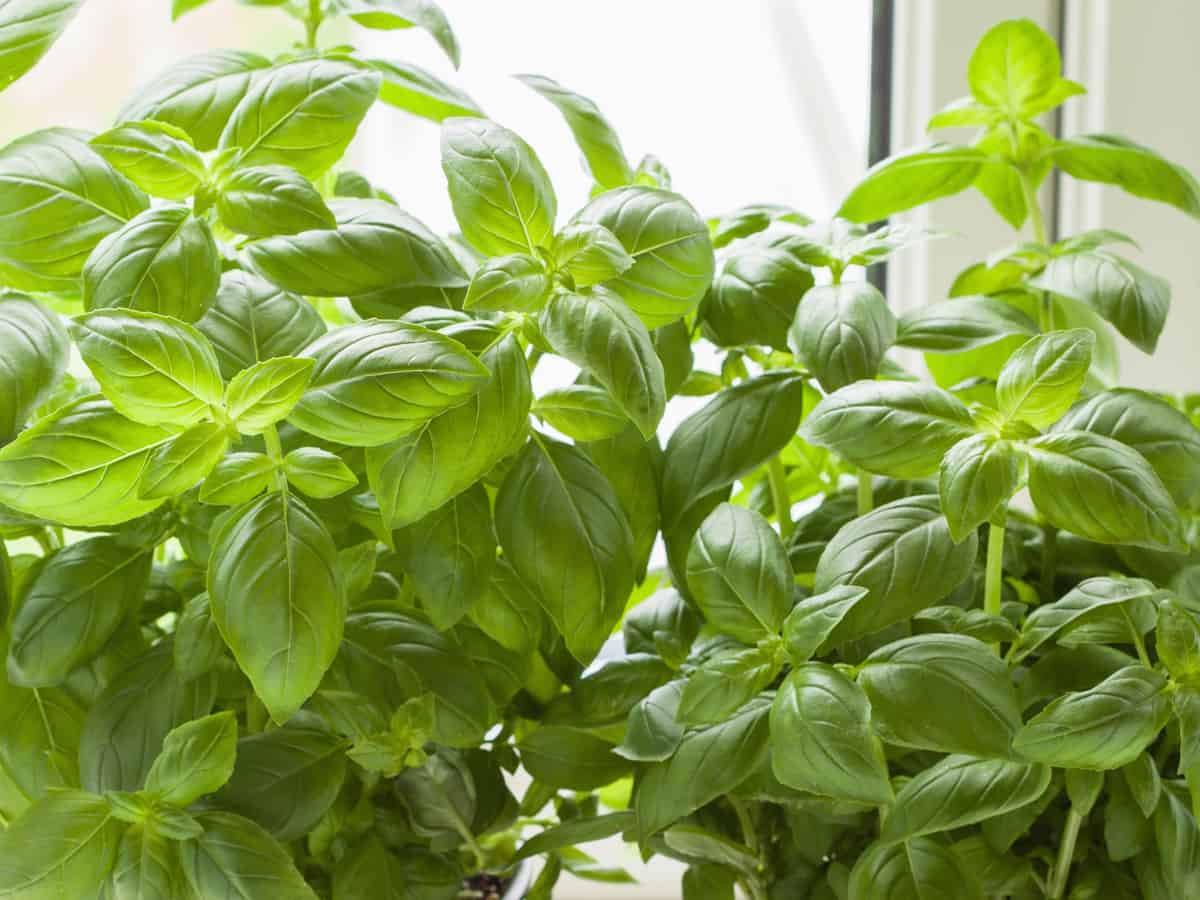
Basil is one of the most useful herbal plants for repelling spiders and one of the plants that keep fleas away as well as other pests but is beneficial for use in the kitchen. Basil plants work on houseflies and mosquitoes, too.
Most homeowners find it helpful to keep a pot or two of basil near the backdoor, as it is one of the plants to keep flies away and discourages these pests from making their way inside. It also allows you to quickly grab some fresh basil when you are cooking.
Basil does require full sun and prefers soil that is kept slightly acidic or neutral. If planting outside, do so after the last frost and the soil has had a chance to warm up.
Sweet basil is the most common herbal plant selected, but other varieties that work to keep pests at bay. This herb does well in containers and raised beds as it allows for the best drainage.

Mint (Mentha)
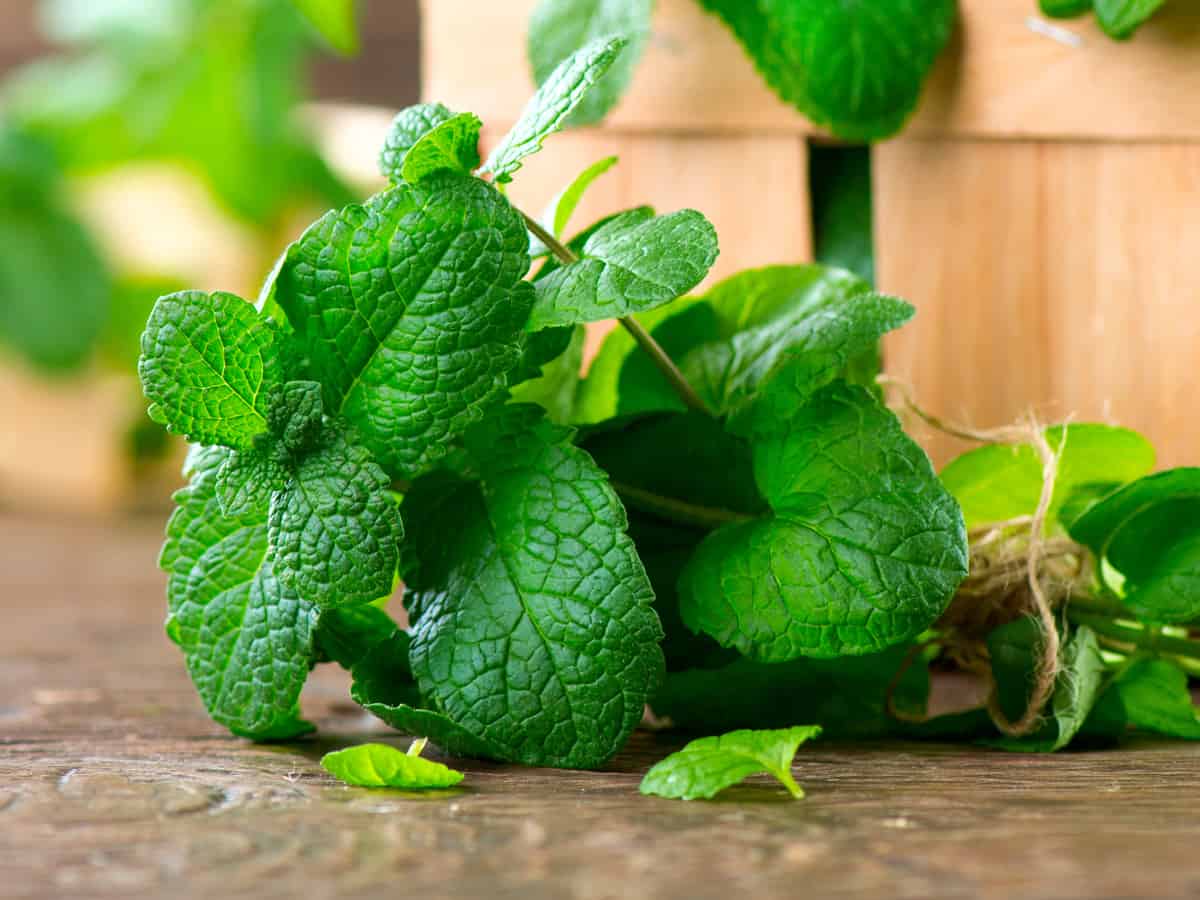
Mint plants, including peppermint, catnip, and spearmint, are spider repellent plants; they are also mosquito, aphids, and ant repelling plants, too. Their oils are often found in homemade aphid killer recipes. One thing to watch for with mint plants is how quickly they spread.
The benefit of planting mint is that they are low-maintenance. If planted outdoors, they need just a light layer of mulch to help keep them moist. Indoor plants require regular watering to ensure moist soil. However, don’t keep the soil too wet. Getting rid of gnats in plants will become a problem if the soil remains overly damp.
Mint plants are an excellent kitchen plant, but these plants are also used in herbal medicines, as ground covers, air fresheners, and much more. These easy to grow plants thrive in partial shade to full sun.
When planting, ensure you are using a light soil and good drainage. In cold climates, mint does require protection during the winter, so consider planting in pots that you can move indoors.
Repel Spiders with this Plant – Lemon thyme (Thymus x citriodus)
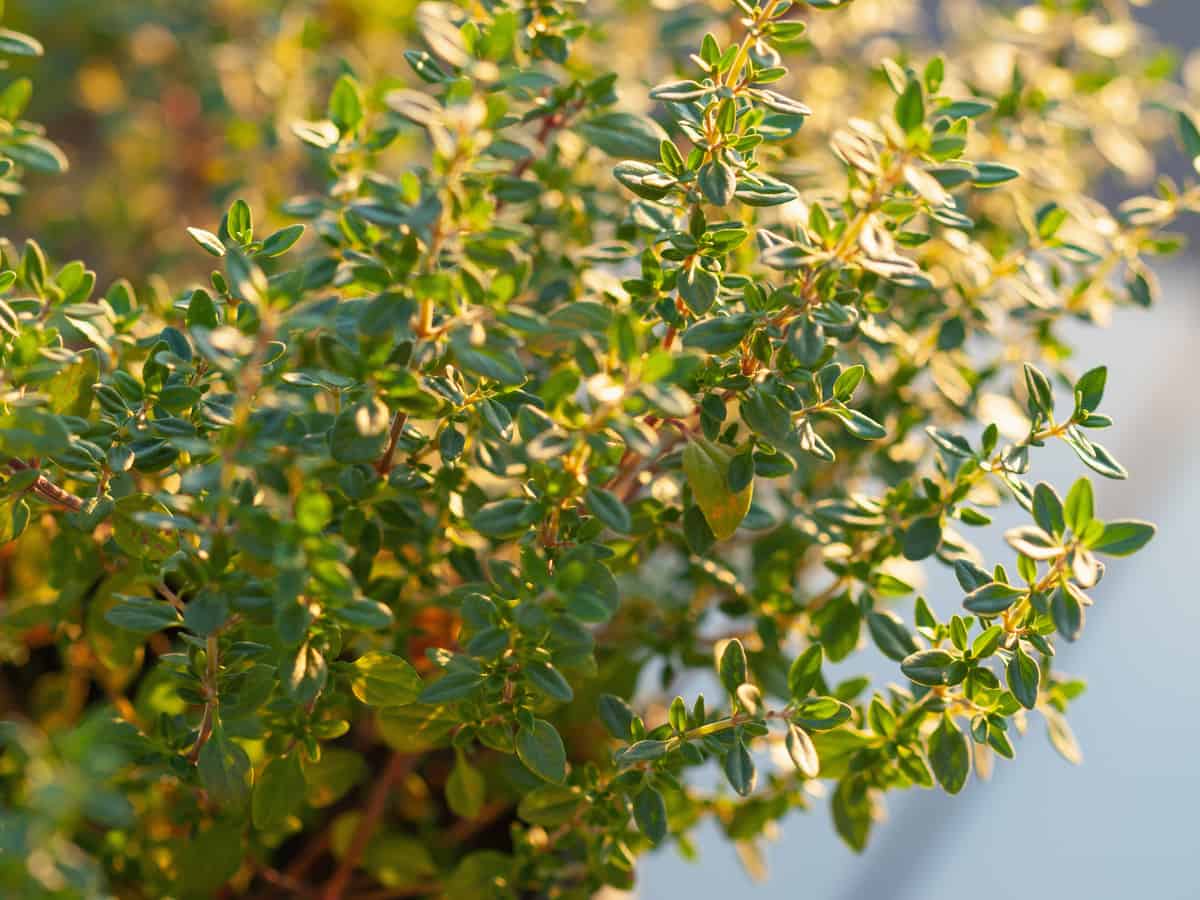
Lemon thyme makes a great addition to your herb or flower garden. This versatile herb is used in cooking but is also known for its attractive foliage. Although lemon thyme may keep bugs like spiders at bay, it is known to attract bees, which helps pollinate surrounding plants, so choose your location for this plant carefully.
When growing, lemon thyme looks similar to an evergreen shrub, but it gives off a distinctive lemon scent. Care of lemon thyme is straightforward. It thrives in zones 5 through 9 and grows as an evergreen in zones 8 and 9. Plant lemon thyme in full sun during the early spring in well-drained soil that receives very little irrigation.
A low maintenance plant, lemon thyme does well in poor soil conditions and is one of the drought resistant plants. Root rot is a problem if lemon thyme is left in soggy or overly wet soil, but it is not prone to any other diseases or insect issues.
Lavender (Lavandula)
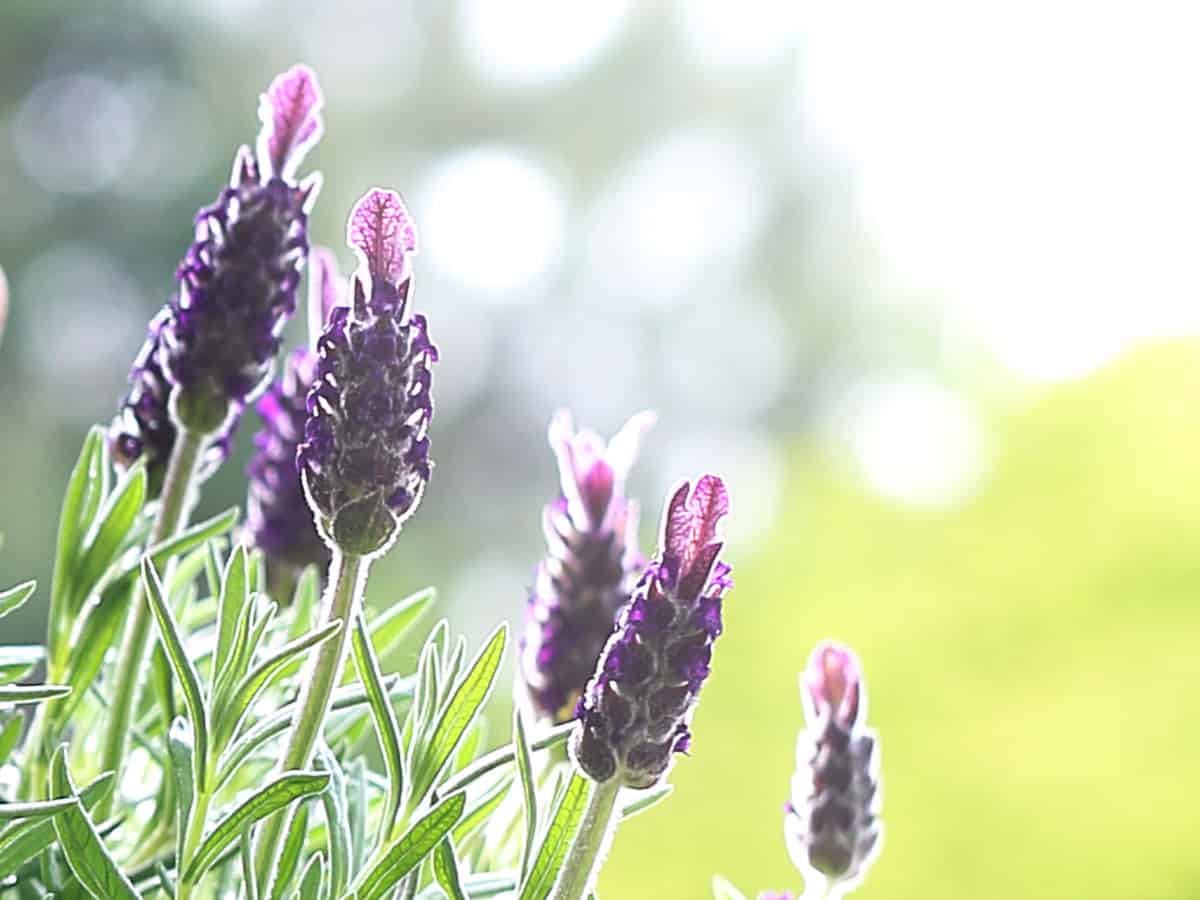
Lavender is a flowering herbal plant that emits a scent that most people love, but that is strong enough to keep gnats, mosquitoes, and spiders at bay. Like many other herbal plants, lavender plants are easy flowers to grow as they are a drought-tolerant plant. Once they are established, very little care is required.
Place lavender in containers or in the ground near doorways and windows to keep pests outside where they belong. You can grow these plants inside, but they do require more work than if planted outside.
When planting outdoors, select a location that receives a minimum of six hours of direct sunlight a day. The pH level of the dirt should be between 7 and 8, so you want an alkaline soil rather than acidic.
To lower the acidity of your soil, add some lime. Lavender prefers dry conditions, so plant in well-draining soil. Bushes require pruning at least one time a year to encourage new blooms and to prevent the plant from becoming too woody.
Chives (Allium schoenoprasum) – Plants that Repel Insects and Spiders
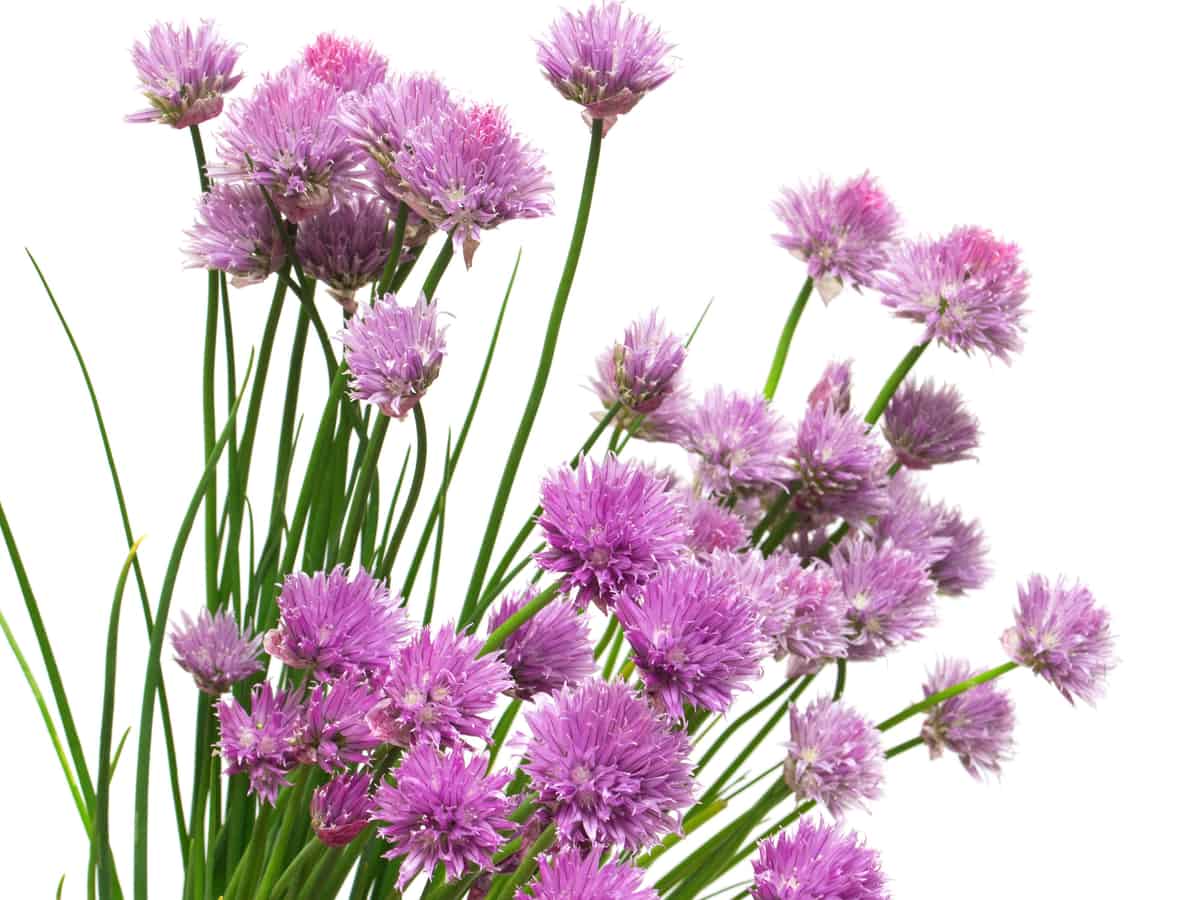
A great addition to any herb garden, chives are one of the easiest to grow and maintain. One of the greatest things about chives is they grow just about anywhere. The secret to growing chives is they need the right amount of sunlight and enough water to stay alive.
Using chives is cooking is easy, as you snip off what you need and leave the stem in place to continue growing. Chives also grow blossoms on separate stems from the ordinary stems; blossom stems are sturdier.
The purple flower is edible and offers a mild onion and garlic flavor. Their natural insect repelling properties make them a welcome addition to most gardens and homes.
Dwarf Citrus Tree (Citrus sinensis)
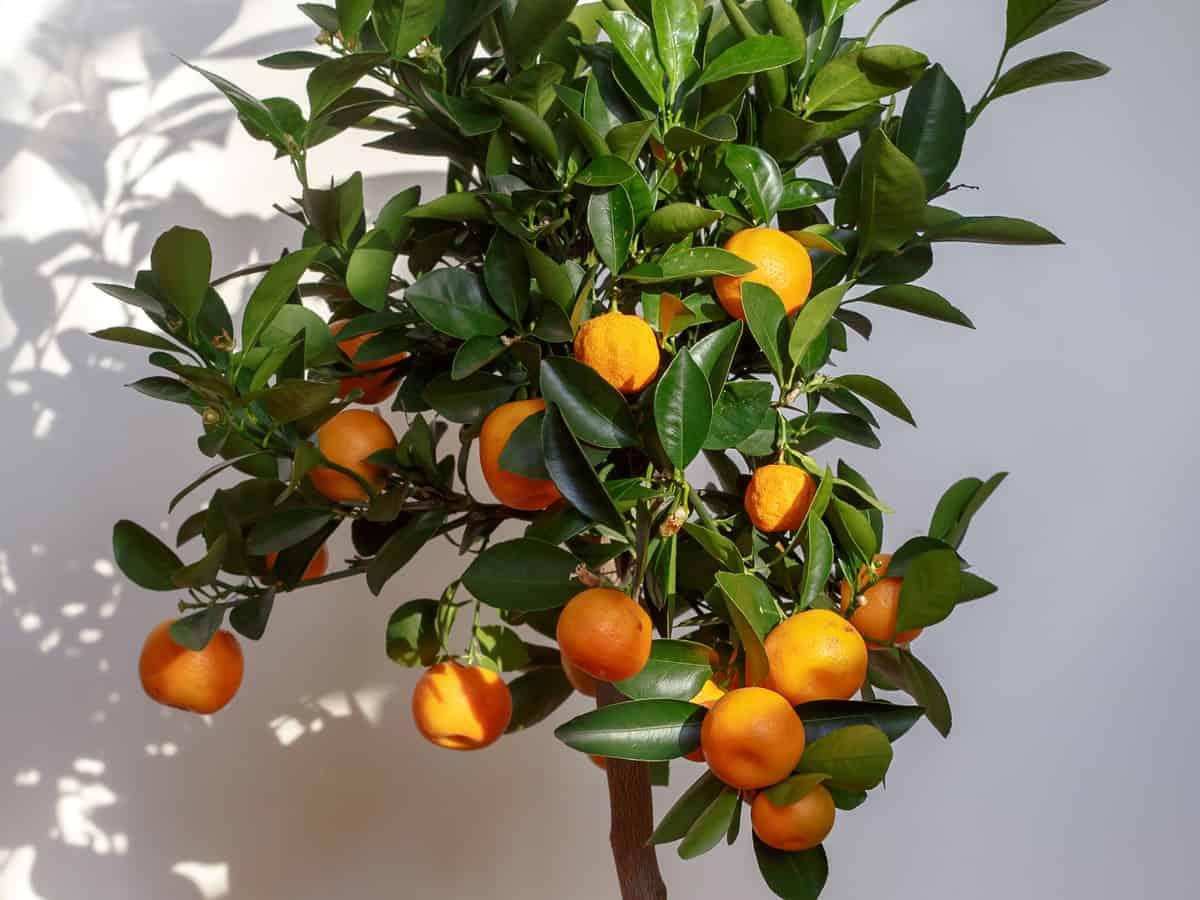
Dwarf citrus trees are an excellent alternative to full-size citrus trees for those that don’t live in a subtropical climate. Dwarf lemon trees only grow to about ten feet tall, but produce the same size fruit as standard trees and the quality of the fruit isn’t compromised. Many people claim that dwarf trees create a more abundant crop of fruit, too.
You can grow dwarf trees indoors or in gardens where a full-size tree won’t have the required space. The secret to growing dwarf citrus trees successfully in containers is providing them with a lot of sunlight. These trees require a minimum of eight hours of daylight a day.
Keep the soil inside the container moist, but not soaking wet. Using a fertilizer for citrus trees, feed your tree often based on the manufacturer’s instructions. In colder climates or during cold snaps, bring trees indoors or insulate them with a piece of burlap, plastic, or a blanket.
Deter Spiders with these Plants – Onion (Allium cepa)
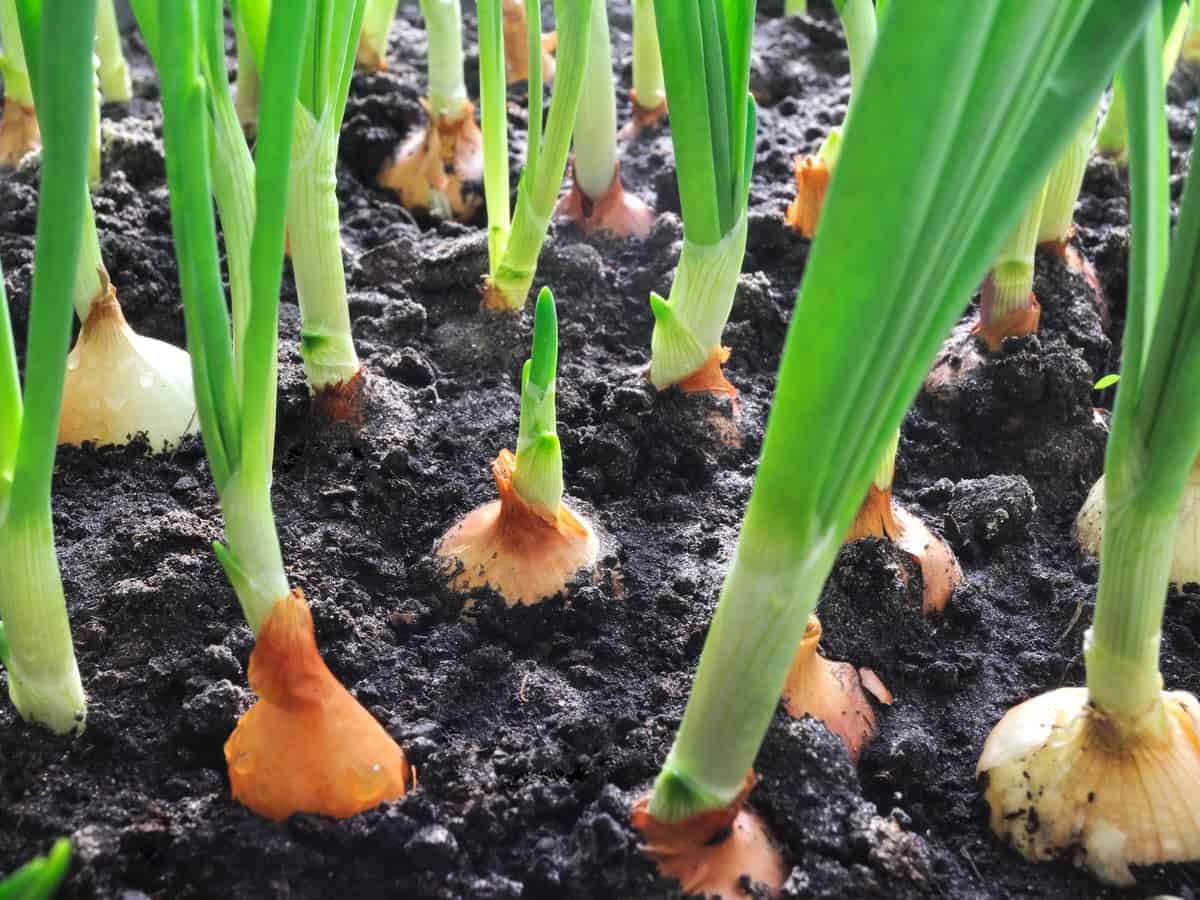
Planting onions in your vegetable garden will help repel spiders, but they are also one of the few plants that repel spider mites. As a cold season crop, onions are relatively easy to grow because of how hardy they are. Plant your onions in the spring and then harvest in the fall once their tops start dying back.
You will have the best luck growing onions in raised beds or in rows that are raised four inches high. Begin planting your onions in the spring as soon as you can start working the ground. When selecting a planting location for your onions, choose the one that offers full sun. Never plant your onions where they will become shaded by other plants.
Soil requirements for onions are loose, well-draining soil that is rich in nitrogen. The bulbs will not develop correctly in compact soil. Add compost to the ground before planting and regularly feed your onions, as they require constant feeding to grow big.
Dill (Anethum graveolens)
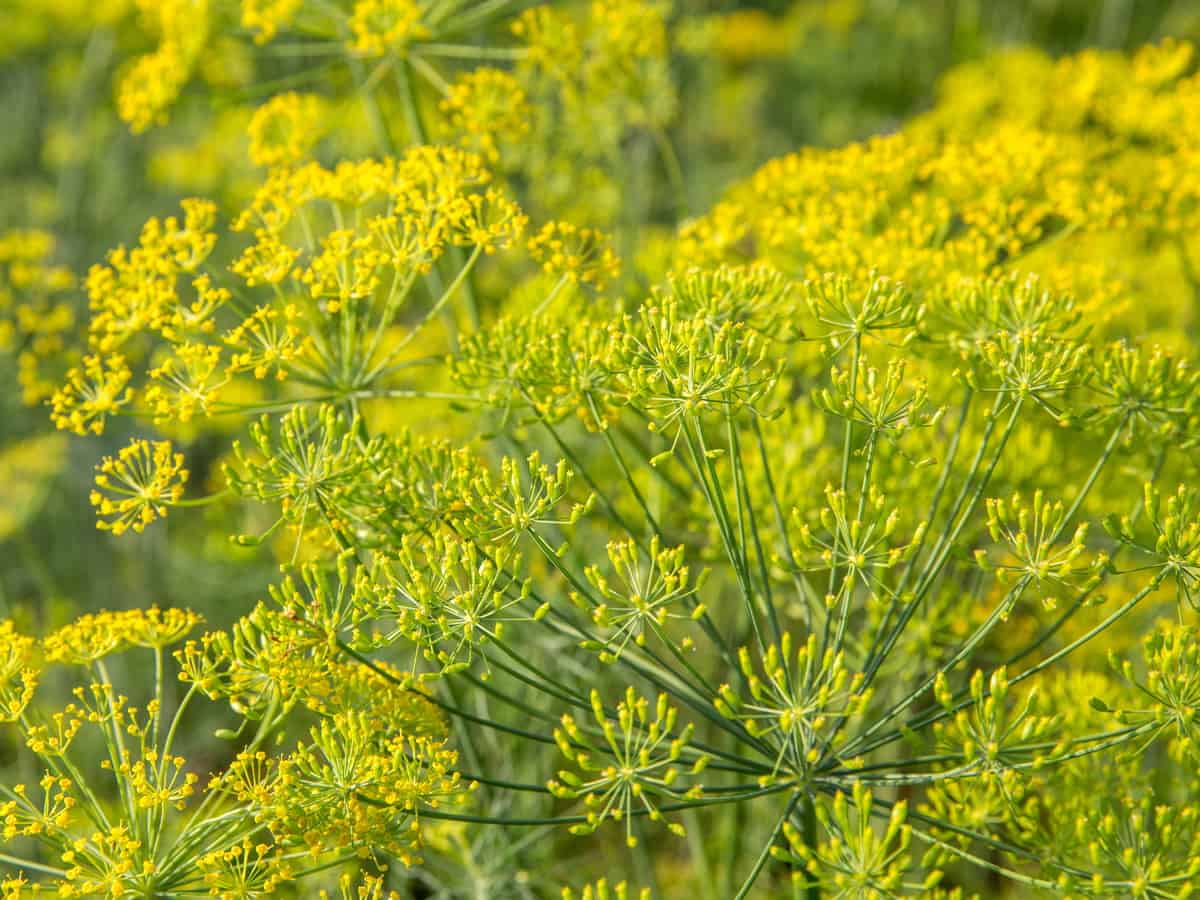
Most people know that dill has many uses in the kitchen. It’s not an overpowering herb, so many people fail to realize it is also useful when trying to deter spiders and other bugs. Dill works best to repel unwanted critters in the area it is planted, so plant directly in your garden or containers placed along your windowsills.
If growing indoors, be sure to provide it with plenty of light, as it needs several hours of sunlight for the best growth. Dill is like many other herbs and can withstand hot and cold weather and is very easy to grow. Dill requires very little attention and is known for its ability to self-seed.
Each plant only lives for two years, but if left on its own to self-seed, the plants come back year after year. Dill thrives in various soil types, but poor soil that drains well is the best in terms of flavor.
Osage Orange (Maclura pomifera) – Plants that Deter Spiders Naturally
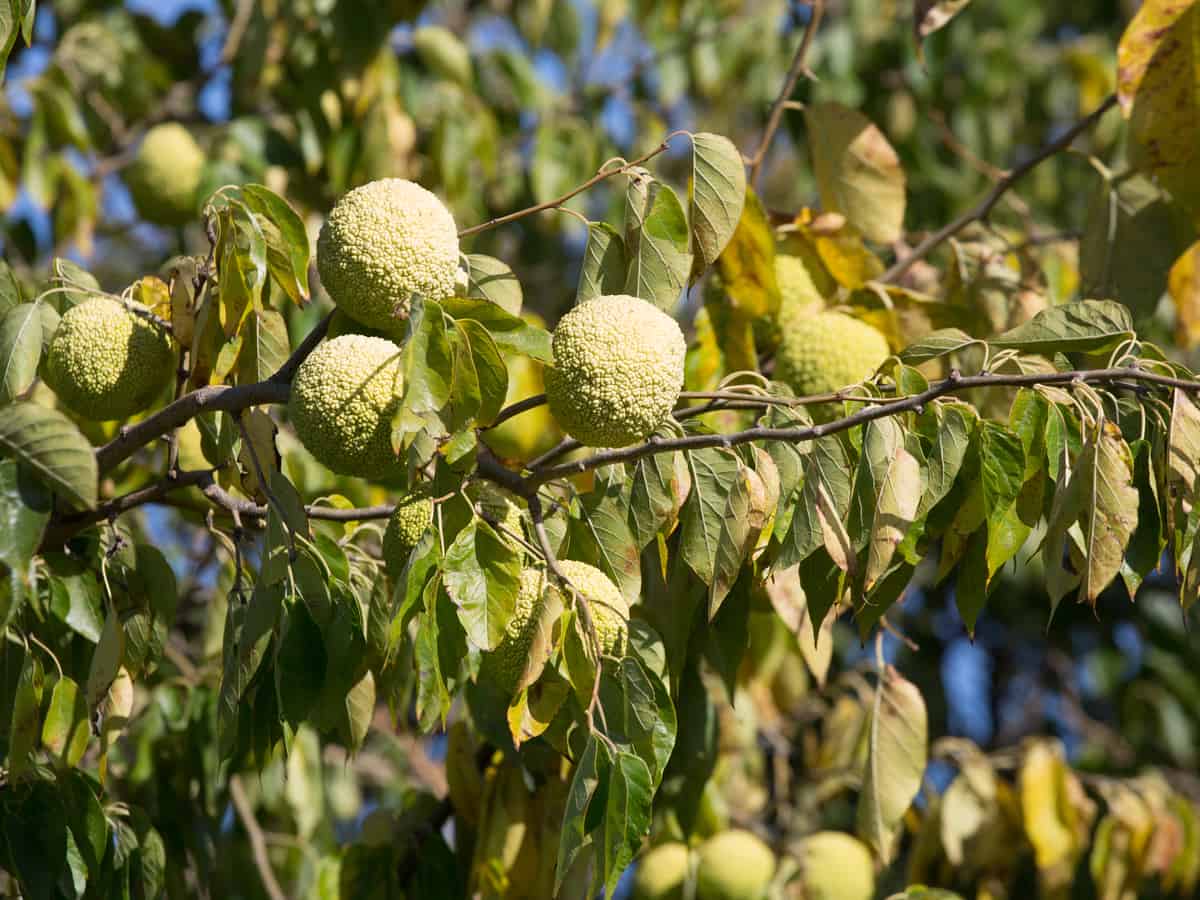
The Osage orange is a hedge, sometimes referred to as a hedge apple tree. This medium-sized tree or large shrub is excellent for areas where large populations of spiders exist rather than just a few coming into the home. The most interesting feature with this tree is the fruit it produces.
The fruit skin emits an oily compound that smells similar to citrus. The tree itself does not repel spiders or any other insects; it is the fruit from the tree that does all of the work. The fruit begins blooming in April and lasts until June.
Once ripe, cut the fruit in half and place along windowsills and around flower beds to help deter pests. The shrub thrives in full sun and requires regular watering, but allow the soil to dry out before the next watering. Soil requirements range from clay to medium loam.
Lemon Balm (Melissa officinalis)
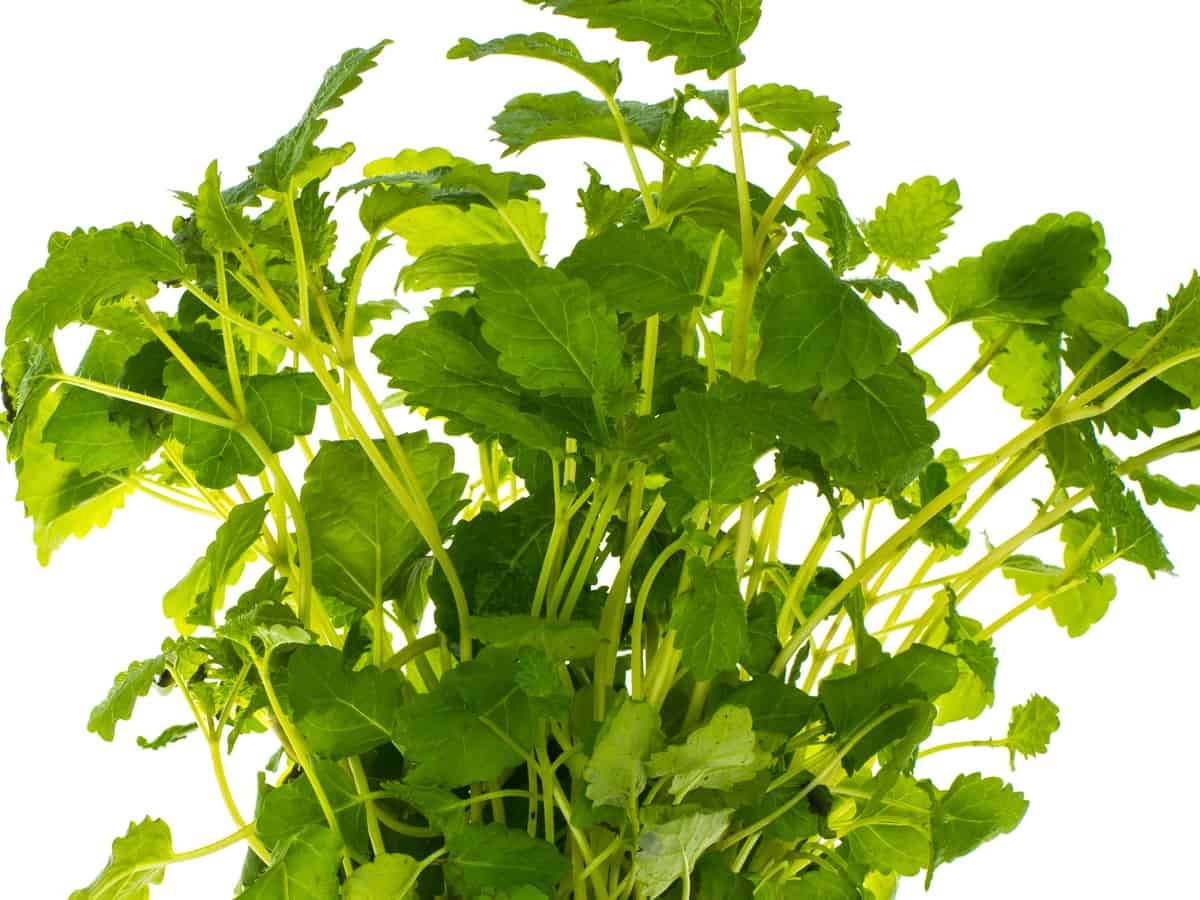
If you need to get rid of fruit flies in addition to deterring spiders, add a few lemon balm plants to your home décor. As part of the mint family, it should come as no surprise that lemon balm is used in the kitchen to enhance food and drinks. The lemon-scented leaves are used to create some wonderful drinks, but also add flavor to salads and meat.
Lemon balm does not do well in hot and humid climates; it thrives in cooler weather. When planted outdoors in freezing climates, it will die back to the ground and reemerge in the spring. Lemon balm does handle shade but prefers full sun.
The plant requires well-draining soil with a pH level ranging from 6.7 to 7.3. Water regularly, as the plant does best in slightly moist soil when grown in a container. The plant requires overwintering in a protected area.
Spider Repelling Plants – Rosemary (Rosmarinus officinalis)
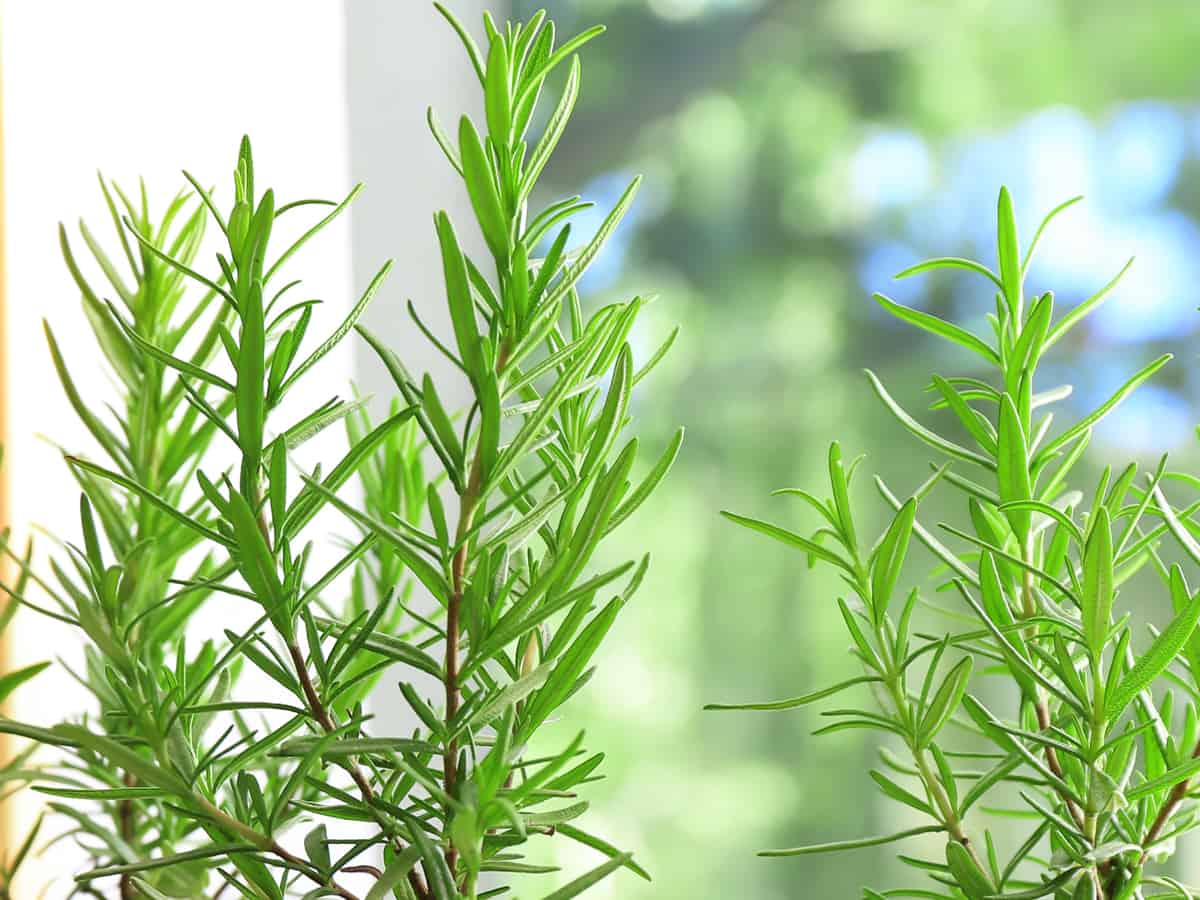
Although rosemary is known to deter spiders, it will not keep spider mites or whiteflies away. However, rosemary is one of the plants that cats hate, too. Get rid of spiders and cats at the same time!
When growing rosemary in colder climates, it is recommended to use pots and containers as these plants do not tolerate cold weather. Pots and containers allow you to move the plants indoors to protect them from severe winter weather.
If planting outside in zones north of 7, do so near a south-facing wall, preferably brick, as this provides a warmer protected spot and keeps the plant out if harsh winter winds. Rosemary requires full direct sunlight to thrive. Soil requirements are well-draining with a pH level between 6 and 7.
To improve the quality of your dirt, add in some compost to the top layer of soil. For containers, use a lightweight soil mix. Always keep soil evenly moist and allow it to dry out completely before watering again. To insulate plants in the winter and to aid in keeping the dirt moist in the summer, apply mulch around your plants.
Citronella Grass (Cymbopogon citratus)
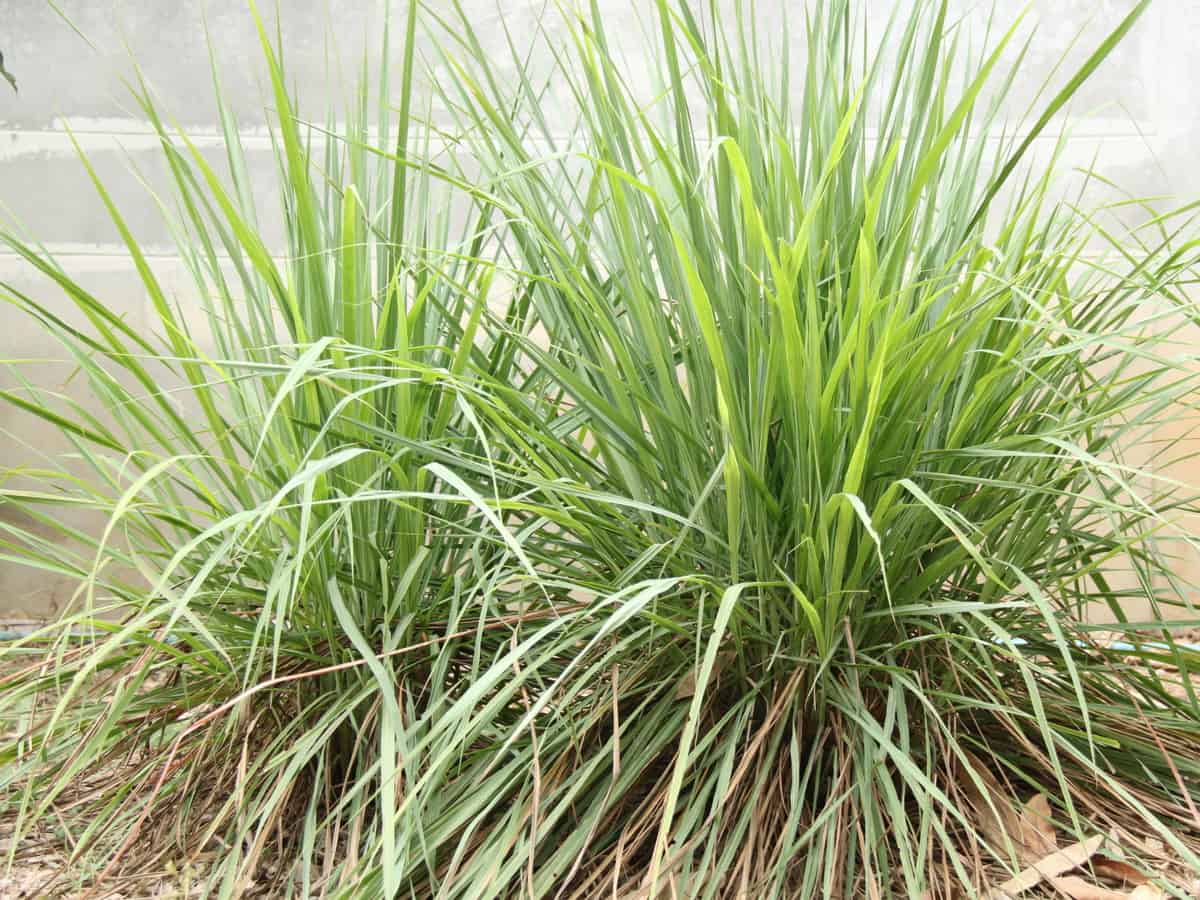
Another name for this spider and mosquito repellent plant is lemongrass. It is this plant that is the source of citronella oil, which is found in a variety of insect repellent sprays. Citronella or lemongrass is easy to grow but does not do well in winter.
It is strongly recommended to grow lemongrass in pots, as you can bring the plant in for protection during unfavorable weather. Whether in the ground or pots and containers throughout your yard, lemongrass requires full sun and well-draining soil to thrive.
For optimal growth, Citronella requires a steady source of water; roots should never dry out. When growing the plant indoors, place in a south-facing window and cut back on watering during the winter. Brushing up against the leaves or crushing them in your hand will release the oils that keep pests away. Use the crushed leaves to make an all natural fly spray.
Eucalyptus (Eucalyptus spp.) – Plants that Repel Spiders
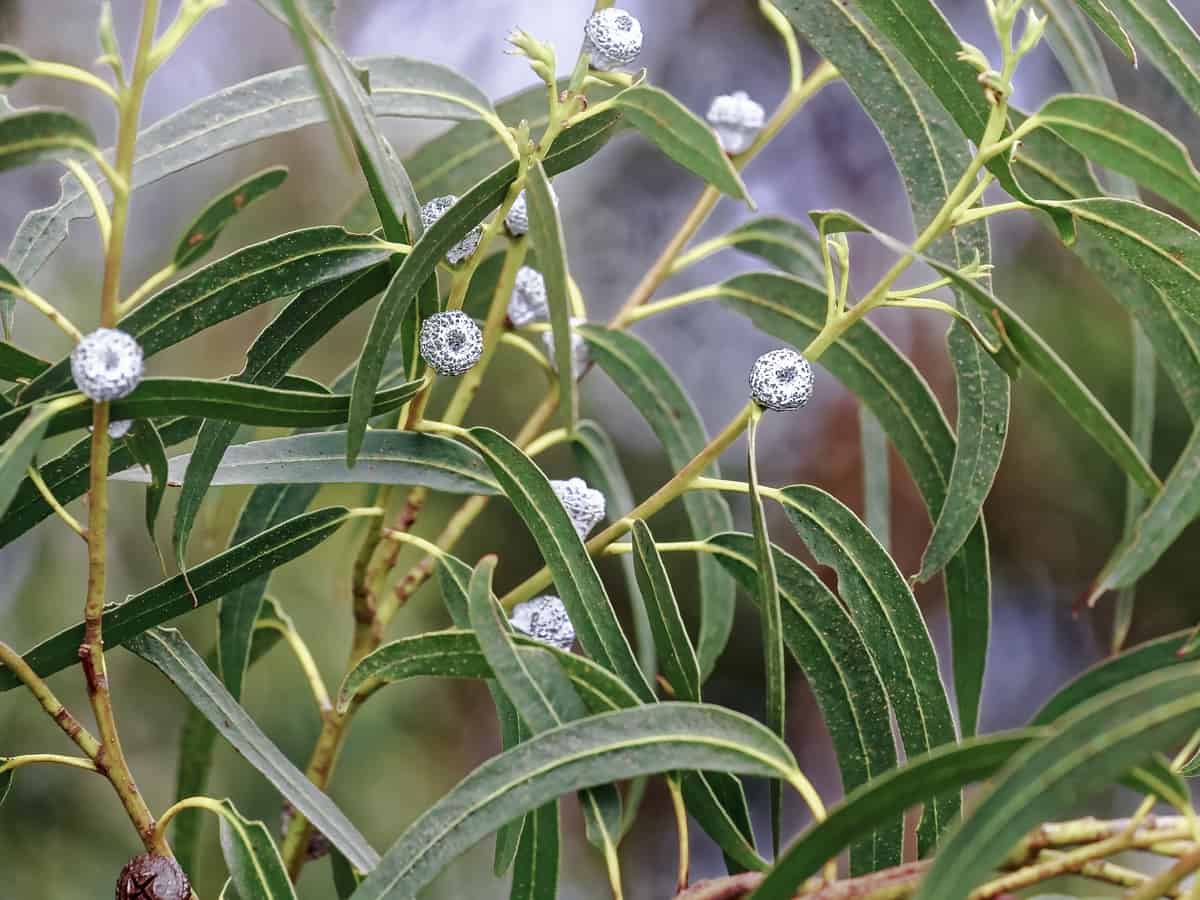
Eucalyptus has a very distinct smell, and in Zones 8 through 10 can grow to some pretty impressive heights. The scent of the leaves is known to help deter spiders and other bugs. Most gardeners are not after a full-grown eucalyptus tree; in those cases, the dwarf varieties make an excellent choice.
When grown indoors as a plant or shrub, they require constant trimming. For protection during colder weather, bring the plant indoors or grow it as an annual. Inside, the plant requires full sun and a lot of feeding, so place in a southern facing window.
Eucalyptus will adapt to most soils but requires a bit more care than other indoor plants. Feed your plants once a week with liquid food. Avoid over and under watering these plants and keep in well-draining soil. This plant doesn’t transplant well, so once it outgrows a pot, it is best to start over with a new plant.
Lemon Verbena (Aloysia citrodora)
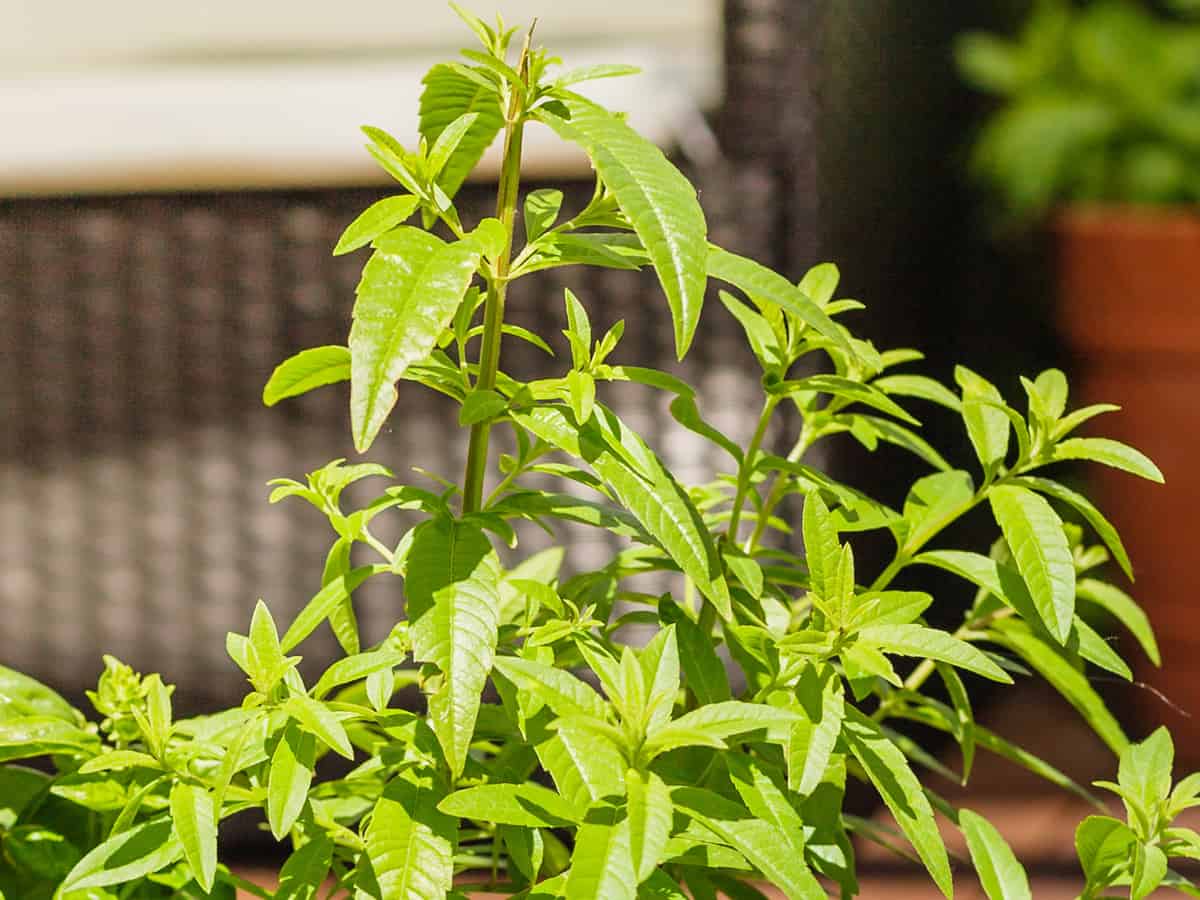
Lemon Verbena is a great way to keep the creepy crawly critters away from your home. When planting Lemon Verbena, whether in pots or outdoors, use well-draining organically fertile soil. The secret to keeping this plant alive is how well the soil drains; as if the roots are kept wet and soggy in their soil, the plant will die.
For container planting, these plants require a minimum 12-inch container with a premium potting mix. Lemon Verbena needs full sun for optimal growth and full flavor leaves. In Northern regions, place the plant near a white wall or fence to provide it with reflected light to enhance growth.
Too much shade leads to spindly leaves and low essential oil levels. Lemon Verbena is one of the few herbal plants that require frequent fertilization. You can overwinter lemon Verbena, but it’s better for the plant if you allow it to go dormant over the winter.
Chrysanthemums (Chrysanthemum morifolium) – Plants that Repel Insects and Spiders
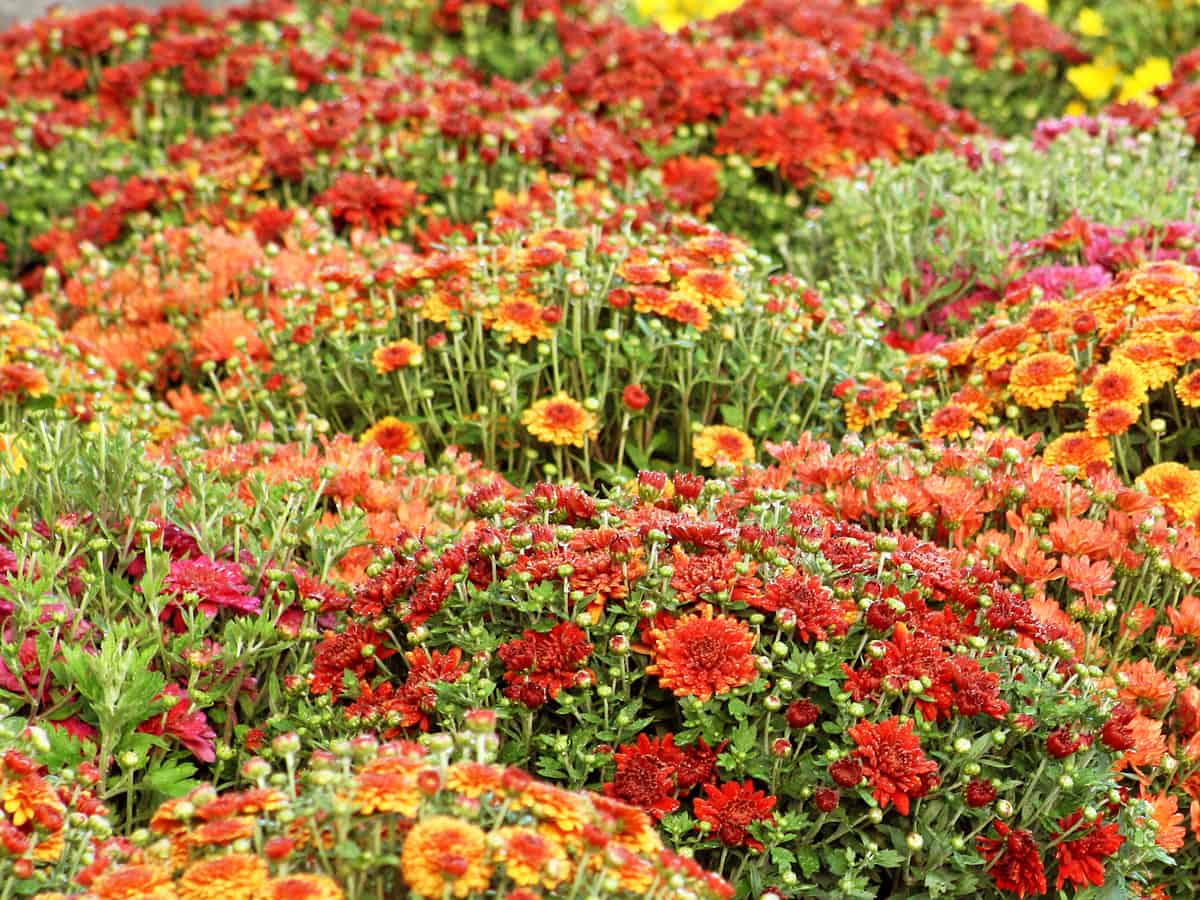
If you want a plant that deters just about every insect out there, consider Chrysanthemums, which were previously known as Pyrethrum. Some of the insects these plants help prevent include Japanese beetles, ticks, roaches, ants, spider mites, bed bugs, and of course, spiders. They are also plants that deter silverfish. Some insect repellents are using this flower as an active ingredient because of how effective it is at deterring pests.
Chrysanthemums, also known as mums, are easy to grow indoors and outdoors once you have learned the basics of their care. When picking out these flowers, consider where you live, as some species do better in certain climates.
No matter what ones you pick, these flowers require well-draining soil but can adapt to various soil types. They will grow in partial shade but do best when planted in a sunny location.
Marigolds (Tagetes)

Planting Marigolds near your vegetable garden or in pots placed outside your doors and along your patios are a great way to not only keep spiders away but also help keep rabbits from eating the rest of your plants. Marigolds are also a gnat repellant plant. An annual flower rather than a perennial, Marigolds bring color and beauty to every garden and are easy to grow.
If opting for the tall American Marigolds, which are slower to mature, plant them after the last frost. Start the seeds indoors, but as these seeds germinate relatively quickly outdoors, there is no real advantage to doing so.
When choosing a planting location, find one that offers full sun with moderately fertile soil. Marigolds require well-draining soil and, if planted in a container, use a soil-based mix. Allow the dirt to dry between watering and water more often during heat waves.
Geraniums (Pelargonium)
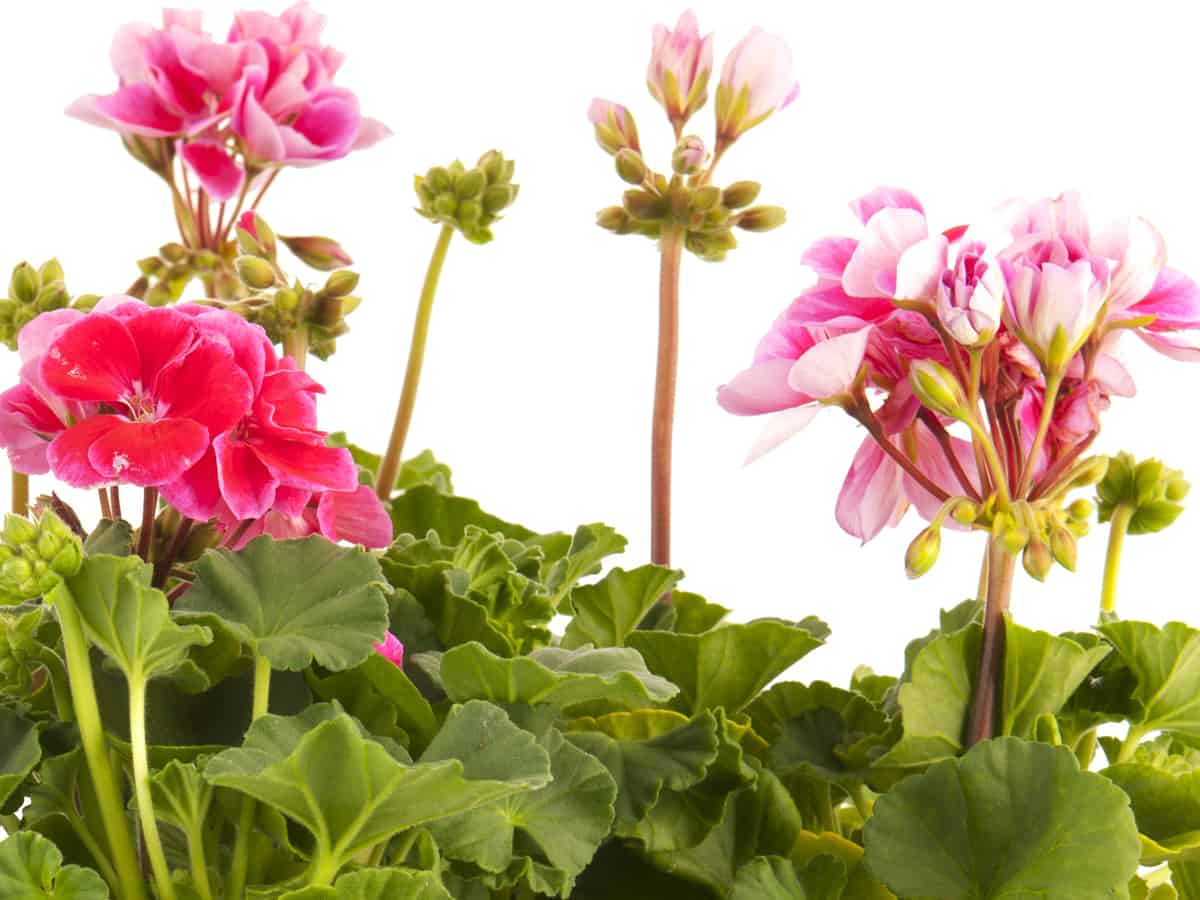
Geraniums are a popular choice among gardeners as they emit a pleasant scent, are easy to grow, and they come in a variety of colors. To make them even more popular, they have been shown to help keep spiders away. Geraniums work wonderfully outdoors during the warmer weather but need to be brought in for the winter.
If given enough light indoors, these colorful plants will bloom all year long. Geraniums require four to six hours of sunlight a day to flourish but do best when allowed to go dormant during the winter. When buying Geraniums for your home, choose healthy plants.
Pay attention to the color and size of the plant, including the leaves. Opt for plants with no discoloration and sturdy stems. Plant the Geraniums in pots or containers with drainage holes to prevent them from falling victim to root rot.
Use a potting mixture that drains well, avoid using clay or heavy soils. Water thoroughly, but allow the soil to dry out in between each watering.
Plants that Deter Spiders – Petunias (Petunia)
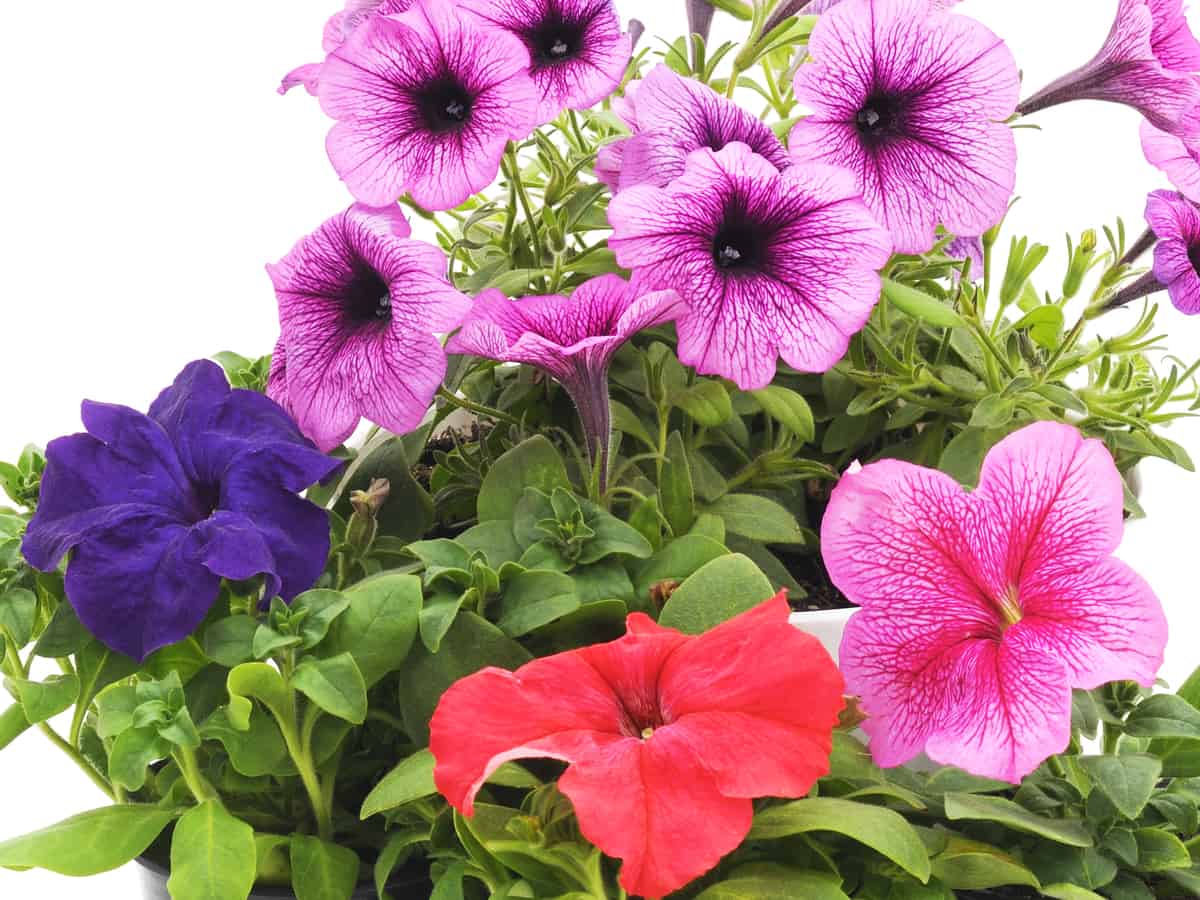
As one of the most popular annual flower choices for gardeners, it is helpful to learn that Petunias also help repel spiders. In Zones 9 through 11, these annuals are considered tender perennials. Petunias bloom in a variety of colors from pink, purple, red, yellow, and white during the spring, summer, and fall.
If you plan right, you can keep spiders away while enjoying splashes of color through all three seasons. Grandiflora petunias offer a larger flower and do best in hanging baskets or containers as they require protection from the rain in an attempt to prevent damage to the flowers.
Multiflora petunias are smaller but more abundant when it comes to flowers. They make the perfect addition to flower beds or borders as the wet weather won’t damage them. Petunias can withstand the heat and only require weekly watering.
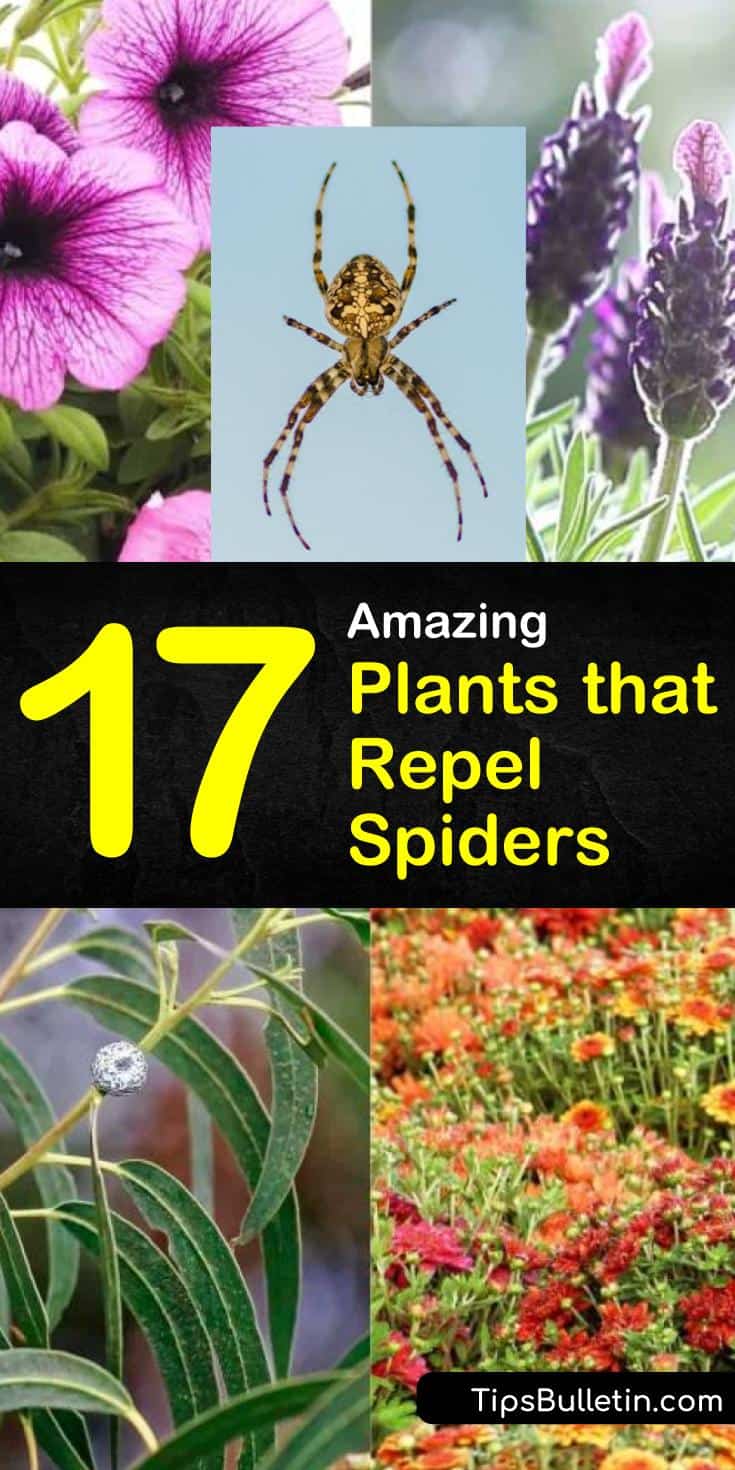
Thank you for taking the time to read our ideas on various plants that repel insects and spiders. If you found these ideas for plants that deter spiders and other pests useful, please share our thoughts on plants that repel spiders on Facebook and Pinterest.